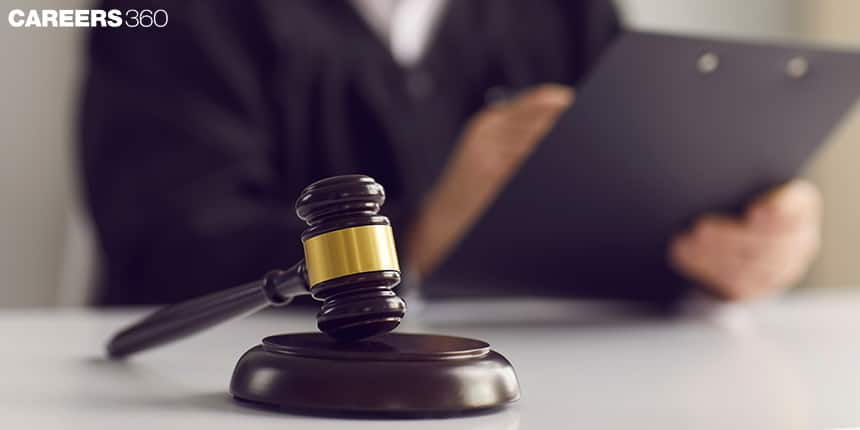How Does Indian Judiciary Appoint Judges ?
Indian Judiciary is one of the largest judicial systems in the world, consisting of multiple levels of courts with over 20,000 judges. The appointment of judges to these courts has been a long-standing issue in the Indian legal system, with many debates over the process of appointment and the need for judicial independence. In chapter 6 of NCERT Class 11 Judiciary, is discussed briefly. Let us understand the Collegium System, its history, and its significance in detail.

Collegium System: History
Indian Constitution, which came into effect in 1950, provided for the appointment of judges to the Supreme Court and High Courts by the President of India, in consultation with the Chief Justice of India and the respective Chief Justices of the High Courts.
Now, the collegium system is a mechanism for the appointment of judges to the High Courts in India. The collegium system of appointment of judges in India was developed through a series of legal and constitutional developments over several decades. Here's a brief history:
In the First Judges Case of 1981, the Court established that the Chief Justice of India's recommendation on judicial appointments and transfers could be overruled by the Executive for "cogent reasons." This gave the Executive greater influence over judicial appointments for the next 12 years.
In the Second Judges Case of 1993, the Court introduced the Collegium system and clarified that "consultation" really meant "concurrence." It also ruled that the opinion on appointments and transfers was not solely that of the Chief Justice, but an institutional opinion formed in consultation with the two most senior judges in the Supreme Court.
In the Third Judges Case of 1998, the Court expanded the Collegium to a five-member body, comprising the Chief Justice and the four most senior judges of the Court, in response to a reference made by the President under Article 143 of the Constitution.
Collegium System: Structure
The structure of the collegium system consists of the following:
Chief Justice of India: The Chief Justice of India is the head of the Indian judiciary and the chairperson of the collegium system. The Chief Justice of India is responsible for convening meetings of the collegium and coordinating its work.
Senior Judges: The collegium comprises the Chief Justice of India and the four senior-most judges of the Supreme Court. These senior judges are selected by the Chief Justice of India and are typically the judges with the most experience and seniority on the Supreme Court.
Procedures For Judicial Appointments
The collegium for the appointment of the Supreme Court judge and High Court judge is given below.
For Chief Justice of India (CJI)
The President of India appoints both the CJI and other Supreme Court judges. The outgoing CJI recommends their successor, but in practice, this has been based on seniority since the 1970s supersession controversy.
For Supreme Court Judges
The Chief Justice of India initiates the proposal and consults with the other members of the Collegium, as well as the most senior judge in the relevant High Court. The opinions of the consultees are recorded in writing and become part of the file. The Collegium then sends its recommendation to the Law Minister, who forwards it to the Prime Minister to advise the President.
Chief Justices of High Courts
For the appointment of Chief Justice at a High Court, the policy is to select someone from outside the respective state. High Court judges are recommended by a Collegium consisting of the CJI and the two most senior judges. However, the outgoing Chief Justice of the relevant High Court initiates the proposal and consults with their two most senior colleagues. The recommendation is then sent to the Chief Minister, who advises the Governor to forward the proposal to the Union Law Minister.
Removal Of Judge
The process of removing judges from the Supreme Court and High Courts is exceedingly difficult. A judge can only be removed if there is clear evidence of misconduct or incapacity. In such cases, a motion with the charges against the judge must be passed by a special majority in both Houses of Parliament. It is worth noting that while the executive branch has a vital role in making appointments, the legislative branch holds the power of removal. This ensures a balance of power and preserves the independence of the judiciary. To date, there has only been one instance of a Supreme Court judge being considered for removal by Parliament.
Attempts To Reform The Appointment System
In 2015, the court invalidated the proposal to establish a 'National Judicial Appointments Commission' through the Ninety-ninth Amendment Act of 2014. The reason for this was that it was seen as a potential threat to the independence of the judiciary.
Collegium System: Criticism And Role
The Collegium System has faced criticism from various quarters. One of the main criticisms of the system is that it lacks accountability and transparency. The appointment of judges is made by a small group of senior judges, which could lead to potential conflicts of interest and the possibility of nepotism. Additionally, the Collegium System has been criticised for not adequately representing the diversity of the Indian population, with a majority of the judges appointed being from upper castes and privileged backgrounds.
Despite the criticisms, the Collegium System has played an essential role in protecting the independence of the judiciary in India. The system has been instrumental in preventing the Executive from exercising undue influence over the appointment of judges. It has also ensured that the judges appointed to the High Courts are highly qualified and possess the necessary experience and expertise to carry out their duties effectively.
